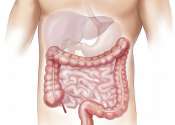Researchers reverse hearing loss in mice
New research from The Institute of Psychiatry, Psychology & Neuroscience (IoPPN) at King's College London has successfully reversed hearing loss in mice.
Aug 9, 2023
0
68
New research from The Institute of Psychiatry, Psychology & Neuroscience (IoPPN) at King's College London has successfully reversed hearing loss in mice.
Aug 9, 2023
0
68

In their continuing work to limit the impact of COVID-19, Emory University researchers have, for the first time in nonhuman primates, studied how modulating the signaling of type 1 Interferon (IFN-I), one of the body's initial ...
Aug 8, 2023
0
28

By the time multiple sclerosis is normally diagnosed—when brain lesions appear on magnetic resonance imaging scans—the patient can have irreversible damage and treatment options can be limited. But in a Stanford Medicine-led ...
Aug 8, 2023
0
65

New Alzheimer's research from UVA Health suggests that enhanced light sensitivity may contribute to "sundowning"—the worsening of the disease's symptoms late in the day—and spur sleep disruptions thought to contribute ...
Jul 27, 2023
0
22

A gene encoding a protein linked to tau production—tripartite motif protein 11 (TRIM11)—was found to suppress deterioration in small animal models of neurodegenerative diseases similar to Alzheimer's disease (AD), while ...
Jul 27, 2023
0
17

Restoring and improving gut health may be key to slowing HIV progression to AIDS, according to a new study by University of Pittsburgh infectious diseases scientists published today in the journal JCI Insight.
Jul 24, 2023
0
30

RUSH researchers recently discovered that a muscle-building supplement called beta-hydroxy beta-methylbutyrate, also called HMB, may help protect memory, reduce plaques and ultimately help prevent the progression of Alzheimer's ...
Jul 20, 2023
0
115

Why do nonsteroidal anti-inflammatory drugs (NSAIDs) exacerbate gastrointestinal infections by Clostridioides difficile, the leading cause of antibiotic-associated diarrhea worldwide? In a new paper published in Science Advances, ...
Jul 19, 2023
0
30

Researchers led by Leipzig University have found a application in oncology for the scientific field of Physics of Cancer. This is a milestone for the new research field, proving its clinical relevance for the first time. ...
Jul 13, 2023
0
30

What makes the vital layer of protective cells around the brain and spinal cord—the blood-brain barrier—more or less permeable has been one of the more mystifying questions in neuroscience.
Jul 13, 2023
0
165
